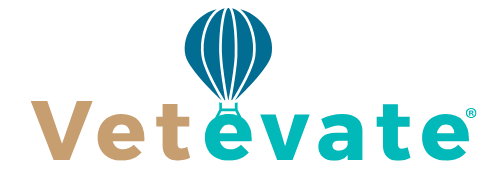In today’s fast-paced veterinary industry, connecting skilled professionals with employers who need their expertise has become both a challenge and an opportunity. Animal hospitals, private practices, specialty clinics, and research organizations all rely on experienced veterinarians to provide exceptional care and leadership. However, as demand for veterinary talent continues to outpace supply, hiring managers are finding it increasingly difficult to locate qualified candidates. This is where veterinarian resumes—and the digital platforms that host them—play a crucial role.
Veterinary job boards have revolutionized how employers find candidates and how veterinarians present themselves to potential employers. Instead of relying on traditional job listings or word-of-mouth recommendations, these specialized platforms allow for direct connections between clinics and veterinary professionals. For employers, they provide searchable databases filled with veterinarian resumes, giving them access to a wide range of candidates from across the country. For job seekers, they offer an efficient way to showcase their experience, education, and career goals to the right audience.
The veterinary workforce is diverse, encompassing everything from small-animal general practitioners to equine specialists, public health experts, and research veterinarians. Because of that diversity, traditional job sites often fail to meet the specific needs of the industry. Veterinary job boards, on the other hand, are tailored to the profession and built around the unique structure of veterinary practice. They bring together employers and candidates in a way that is relevant, organized, and efficient. For both sides, veterinarian resumes serve as the essential bridge that connects expertise with opportunity.
How Employers Can Search for Veterinarian Resumes Effectively
When a clinic or hospital is looking to fill a position, time is often of the essence. Veterinary job boards give employers a powerful way to accelerate the search by browsing through detailed veterinarian resumes directly. This proactive approach allows hiring managers to identify candidates based on qualifications, experience, and location before even posting a job ad.
The most effective veterinary job boards are equipped with advanced search tools that make the process easy and precise. Employers can filter resumes by factors such as years of experience, clinical specialty, certifications, and even preferred work environments. For example, a large animal practice in Texas may be looking for a veterinarian with both food-animal experience and herd health management skills, while a specialty hospital in New York might prioritize board-certified candidates with advanced training. Having access to searchable veterinarian resumes means employers can tailor their searches to fit the exact requirements of their positions.
Keyword searches are another critical component. Employers can enter specific terms like “small animal,” “equine,” “exotics,” or “surgery” to refine their results. Some job boards even use AI-assisted matching technology, which automatically recommends candidates whose resumes align with a job posting. This ensures employers don’t miss out on highly qualified individuals who may not have applied directly. In many cases, employers who actively search veterinarian resumes find better matches than those who wait passively for applications to arrive.
Another advantage of using a veterinary job board is the ability to contact candidates directly through the platform. Once a promising resume is found, employers can send messages, request interviews, or invite candidates to apply to open positions. This streamlined communication reduces hiring time and fosters meaningful engagement with prospective team members.
Beyond immediate hiring needs, browsing veterinarian resumes helps employers plan for the future. By maintaining awareness of available talent, clinics can anticipate upcoming staffing challenges and build relationships with potential candidates early. For multi-location practices or corporate veterinary groups, maintaining ongoing access to a database of qualified veterinarians ensures that when vacancies arise, the search for new talent can begin immediately without delay.
How Veterinarians Can Create and Post Effective Resumes on Job Boards
For veterinarians seeking new opportunities, the key to standing out lies in how well they present their professional story. Veterinary job boards are designed to make this process simple and impactful. By posting veterinarian resumes on these platforms, job seekers gain visibility among employers who are actively searching for talent. The more complete, detailed, and up-to-date a resume is, the more likely it is to appear in search results and catch the attention of hiring managers.
A well-written veterinarian resume begins with a strong summary that highlights expertise, education, and career focus. Employers browsing veterinarian resumes typically spend only a few moments scanning before deciding whether to reach out, so clear and concise information is crucial. Veterinarians should include their degree (DVM or equivalent), state licenses, and any board certifications or specializations. Details about previous roles, clinical skills, leadership experience, and continuing education also add value.
Using relevant keywords is important, as most job boards use search algorithms that prioritize resumes based on employer searches. For example, including specific terms such as “preventive medicine,” “surgery,” “client communication,” or “animal welfare” can make a resume more discoverable. Similarly, veterinarians seeking roles in academia or research should include keywords like “clinical trials,” “data analysis,” or “teaching.” The more targeted and specific the language, the higher the visibility among employers looking for those exact skills.
Most veterinary job boards also allow users to build detailed profiles alongside uploaded resumes. These profiles may include contact information, professional summaries, and even multimedia elements such as headshots or introductory videos. Uploading veterinarian resumes in multiple formats, such as PDF and Word, ensures compatibility with employer systems and applicant tracking software. Veterinarians should review how their resumes appear once posted, ensuring all sections are properly formatted and readable across devices.
Updating a resume regularly is just as important as posting it. Employers often sort search results by recency, so newer or recently updated veterinarian resumes appear higher in listings. Even small updates—like adding recent continuing education or new certifications—can boost visibility. Veterinarians can also use job board settings to indicate whether they are actively seeking opportunities, open to relocation, or available for part-time or relief work, helping employers quickly identify ideal candidates.
Finally, veterinarians should use the opportunity to express their professional philosophy and values. Employers today are not only looking for technical competence but also for team members who align with their clinic’s mission and culture. Including a brief statement about passion for animal care or commitment to client service can make a resume stand out in a field filled with technically qualified candidates.
Building Long-Term Success Through Veterinary Job Boards
The connection between employers and veterinarians goes beyond a single job posting. Veterinary job boards create ecosystems where both sides of the hiring process benefit from ongoing engagement. Employers gain continuous access to fresh veterinarian resumes, while veterinarians maintain visibility to clinics, hospitals, and organizations that are always looking for talent. This relationship-building dynamic helps sustain the entire veterinary profession by keeping qualified professionals and reputable employers connected year-round.
For employers, regularly searching veterinarian resumes keeps them aware of market trends—such as shifts in salary expectations, skill availability, and geographic preferences. This information is invaluable when creating competitive job offers or planning for expansion. For veterinarians, maintaining a presence on these platforms ensures that even if they’re not actively job-hunting, they remain visible for future opportunities. Many employers reach out directly to candidates whose resumes align with their needs, creating possibilities that might never have arisen through traditional job listings.
Engagement also strengthens professional reputation. Employers that are responsive and professional when contacting candidates earn a positive reputation within the veterinary community, making it easier to attract applicants in the future. Similarly, veterinarians who maintain polished, complete resumes demonstrate attention to detail and professionalism—qualities that hiring managers value highly.
As technology continues to evolve, veterinary job boards are expected to offer even more advanced features for managing veterinarian resumes. Artificial intelligence may soon play an even greater role in matching candidates to employers, while analytics will help both sides make smarter hiring and career decisions. Those who embrace these tools now will be best positioned to thrive in the years ahead.
Ultimately, veterinary job boards simplify one of the most complex challenges in animal healthcare: connecting the right people with the right opportunities. Employers gain access to a constant flow of talent, and veterinarians gain a platform to showcase their expertise to a targeted audience. Every successful placement begins with a single resume—and in the digital age, that means taking full advantage of the platforms built specifically for the profession.
For anyone looking to search or post veterinarian resumes, the process is more than just an online formality—it’s the key to building stronger teams, advancing careers, and shaping the future of veterinary medicine.




